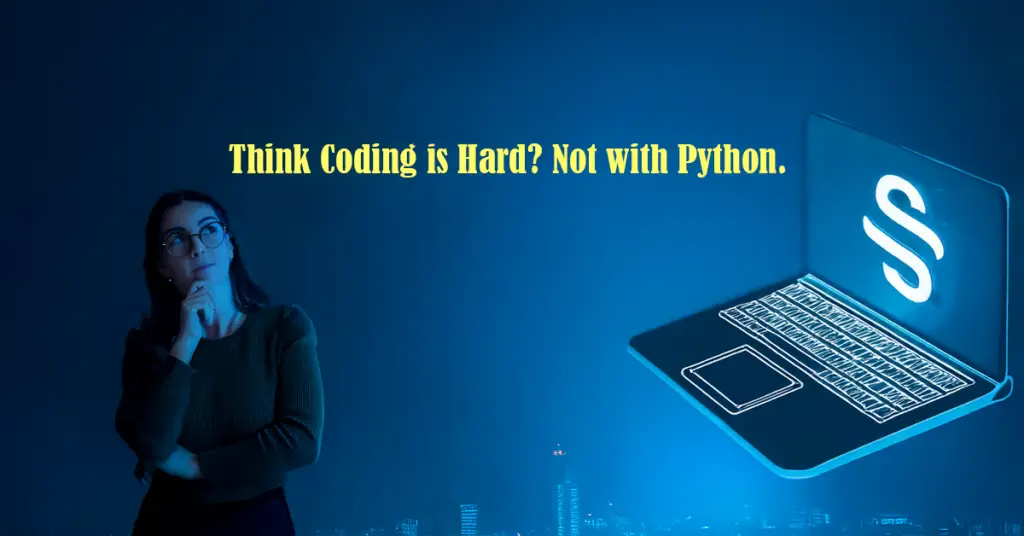Coding Kickoff: Why Python is the Perfect First Programming Language
Have you ever looked at lines of code on a screen and thought, “This looks complicated. Can I learn this?”
If yes, you’re not alone. And guess what? Python is here to prove that yes, you absolutely can.
We’ve seen hundreds of students take their first steps in coding with Python, and we’re here to walk you through why Python is the best first programming language, whether you’re in school, college, or even changing careers. If you’re looking for the best Python course in Delhi, this guide will help you choose a program that truly builds real-world coding skills.
What is Python, and Why is It So Popular?
Python is a high-level, beginner-friendly programming language. It was created with the idea that coding should be simple, readable, and fun.
If you’ve ever opened a textbook and felt lost in complex terms, Python is the complete opposite.
Here’s a simple example:
python
print("Hello, world!"
That’s it—one line. And boom—you’ve just written your first program.
Python is used by Google, NASA, Netflix, Instagram, and thousands of startups. It powers websites, games, apps, data analysis, machine learning, and even AI.
Why Python is Perfect for Beginners
1. Simple, Clean Syntax
Python reads like English. You don’t need to worry about brackets, semicolons, or confusing symbols.
This lets you focus on what you’re trying to build instead of how to write perfect code.
if age >= 18:
print("You are eligible to vote.")
Even if you’ve never written code, this makes sense, right?
2. Massive Career Scope
Learning Python doesn’t just teach you coding—it opens doors to high-paying careers:
-
Python Developer
-
Data Analyst
-
Machine Learning Engineer
-
Web Developer
-
Automation Tester
-
AI Researcher
And the best part? Python is in high demand across various fields, including IT, education, banking, healthcare, and even government jobs.
3. Huge Community and Support
Stuck on something? A quick Google search gives you thousands of tutorials, solutions, and forums. Python’s global community means you’ll never feel stuck alone.
At DICS, we also offer full support—mentors, extra sessions, and hands-on projects—to help you move from confusion to confidence.
4. Great for Real Projects
You won’t just learn theory. With Python, you can build real things fast, like:
-
A calculator
-
A to-do list app
-
A weather checker
-
A chatbot
-
Even a basic game!
When you join our Python course at DICS, you don’t just learn programming—you create projects you can show to colleges, companies, and clients.
Who Should Learn Python?
Still wondering if this is for you? Here’s a quick checklist:
- School students are curious about tech
- College students looking for a useful skill
- Job seekers wanting to switch to IT
- Working professionals aiming for higher-paying roles
- Business owners who want to automate tasks
If you tick any of these boxes, Python is for you.
How We Teach Python at DICS
We’ve designed our Python course for real learners like you. Here’s what makes it different:
-
Step-by-step modules – no rush, no confusion
-
Doubt-clearing sessions – because everyone gets stuck sometimes
-
Real-life projects – to make your resume stand out
-
Certification – to prove your skills to the world
Whether you join online or offline, you’ll get personal attention and expert guidance.
Why “Learn Python” is a Trending Search
If you Google “best programming language for beginners,” Python shows up everywhere.
That’s because employers want it, and learners love it.
By starting now, you’re giving yourself a head start in one of the world’s most powerful, flexible, and beginner-friendly languages.
Ready to Get Started?
You don’t need a tech background. You don’t need to be a genius.
All you need is curiosity and the right guidance.
Join DICS today and start your journey with Python.
Seeking the best Python course in Delhi? At DICS (Delhi Institute of Computer Science), we provide comprehensive Python training designed for beginners, students, and working professionals. Our goal is to make you industry-ready, helping you master Python from scratch to advanced levels with 100% practical sessions and real-world projects.

